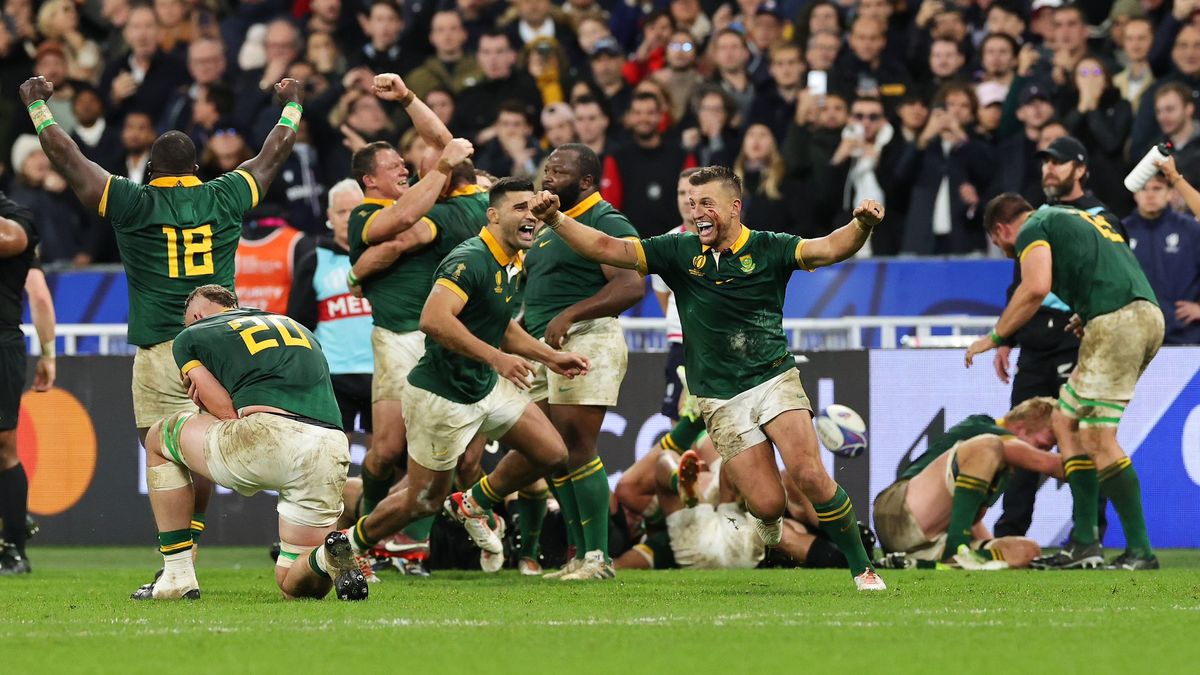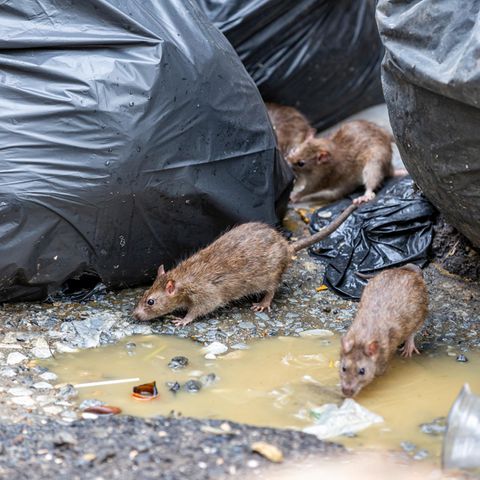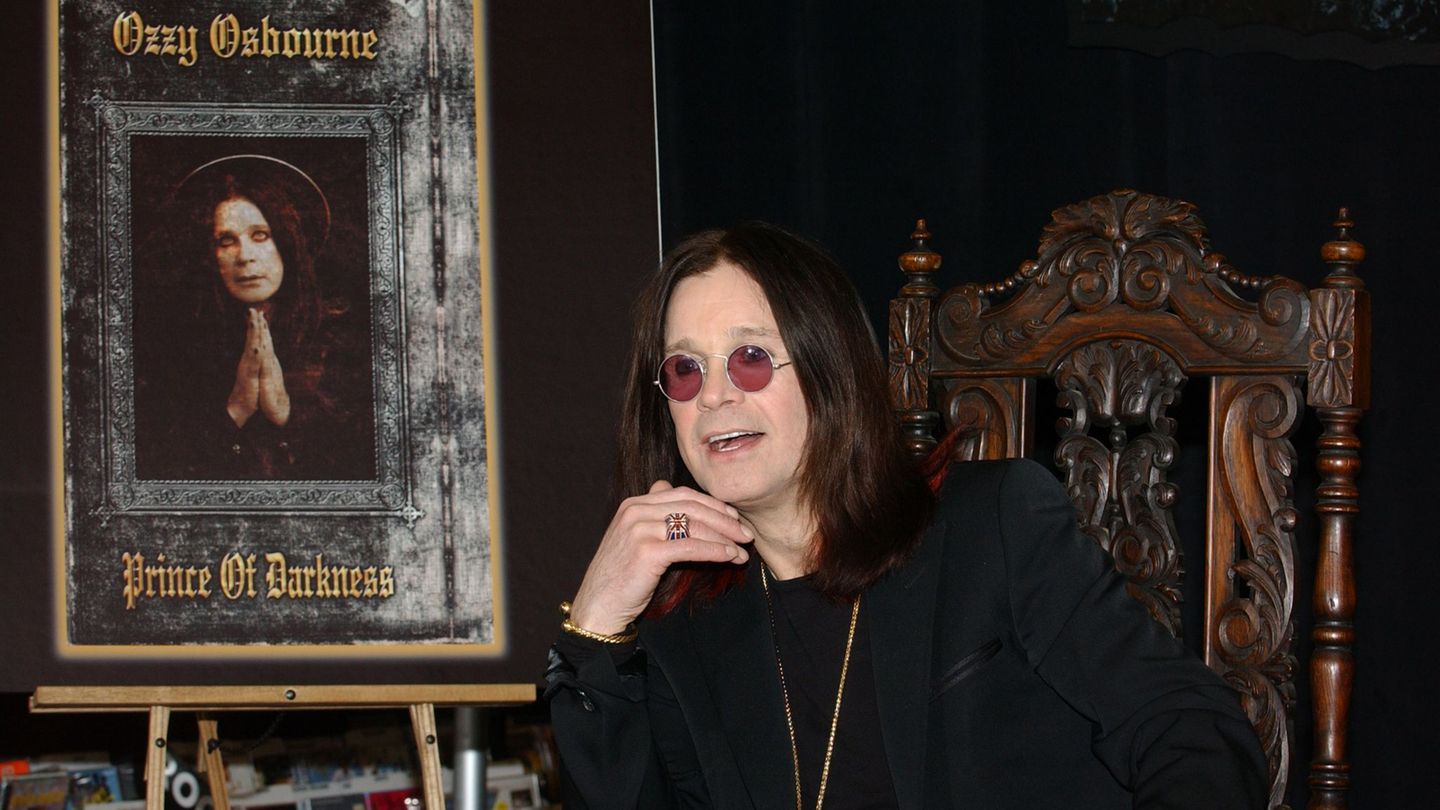The Webb Ellis Cup has a new owner, or rather, it remains with the same one, since South Africa revalidated his world title rugby by beating 12-11 New Zealand this Saturday in Paris, also becoming the first four-time champion in history.
In a very close match and with many errors on the part of both teams, the South Africans took advantage of playing more than 40 minutes with one more player, due to the expulsion before half-time of the captain of the All Blacks Sam Cane, to revalidate the crown achieved four years ago in Japan and add his fourth title, after those achieved in 1995, 2007 and 2019.
With the presence of the tennis players in the stands Novak Djokovic and Roger Federerthe Swiss with the Springboks scarf in tribute to his mother, of South African origin, and after 50 days of competition, he closed the Rugby World Cup in France, a kind of general rehearsal at the organizational level of what the Games will be. Next year’s Olympics.
The final of this World Cup could not have had a better poster, with the two best teams and both seeking the four-time championship, although the duel was not of the quality that was expected, but it was very exciting until the end.
The All Blacks did not offer the level of previous matches, especially in the semifinals when they overwhelmed Los Pumas, and South Africa once again demonstrated, as they did in the matches with England and France, that no other team handles itself better in the body. body and in tight finishes.
In a repeat of the 1995 final in Johannesburg, with South Africa waking up from the nightmare of apartheid and the only one until this Saturday between the two great rugby powers, the Springboks’ hero this time was flyhalf Handré Pollard, who missed the start of the tournament due to injury, author of his team’s 12 points.
The All Blacks started badly and were reduced to 14 as soon as they started due to a dangerous tackle by Shannon Frizell, which also caused the injury of South African hooker Bongi Mbonambi, who barely played two minutes of the final.
The Springboks took advantage of their numerical superiority for 10 minutes to score their first points, two penalties converted by Pollard, much more reliable than Manie Libbok, who began the tournament as the starting ’10’ and who watched the final in the stands.
With the team back to full strength, New Zealand had a brief reaction and was close to achieving the first conquest, but the icing on the cake was not in favor of Ardie Savea.
At least the Oceanians managed to reduce the score with a penalty from Richie Mo’Unga (6-3, m.17).
Despite the majority support of the Stade de France crowd, with the French still unable to digest the defeat in the quarterfinals against the ‘Boks’, New Zealand accumulated errors, allowing Pollard to add two more penalties to make the score 12-3 (m. 3. 4).
The first of those penalties was for a tackle at Sam Cane’s head that led to the expulsion of the New Zealand captain, who first saw the yellow card until the video referee converted it to a red one.
The All Blacks showed pride just before half-time and Rieko Ioane would have scored the try had it not been for a saving tackle by South African winger Kurt-Lee Arendse, although they did manage to reduce the score to 12-6 with which they reached half-time with a penalty converted by Mo’Unga.
https://publish.twitter.com/oembed?url=https%3A%2F%2Ftwitter.com%2FSpringboks%2Fstatus%2F1718374243702837328&partner=&hide_thread=false
South Africa began the second half ready to score and Siya Kolisi and Arendse came close to doing so. However, a mistake by the South African captain could have cost his team dearly: he saw a yellow card for a dangerous tackle on Ardea, which could well have been red, and both teams played with 14 for 10 minutes.
The All Blacks did react then, and although a first try by Aaron Smith was invalidated by a forward pass at the start of the action, minutes later, despite already playing at a disadvantage again, Beauden Barrett achieved the only victory of the match.
However, Mo’Unga failed to put the Oceanians ahead by failing to convert (12-11, m.58), nor would Beauden Barrett do so minutes later with a distant penalty that fell short (m.74). .
Too many mistakes to aspire to win the Webb Ellis Cup, which will travel to South Africa again.
All rugby world champions
The great powers of the Southern Hemisphere dominate the record in the Rugby World Cup, as South Africa demonstrated again, beating New Zealand this Saturday in the World Cup final in France, 12-11, with England being the only team from the north to have won. the Webb Ellis Cup.
With this victory, the Springboks become the first to win four championships and join the All Blacks (2011 and 2015) as the only ones to have revalidated the title.
2023: South Africa
2019: South Africa
2015: New Zealand
2011: New Zealand
2007: South Africa
2003: England
1999: Australia
1995: South Africa
1991: Australia
1987: New Zealand
Source: Ambito
I am Pierce Boyd, a driven and ambitious professional working in the news industry. I have been writing for 24 Hours Worlds for over five years, specializing in sports section coverage. During my tenure at the publication, I have built an impressive portfolio of articles that has earned me a reputation as an experienced journalist and content creator.




